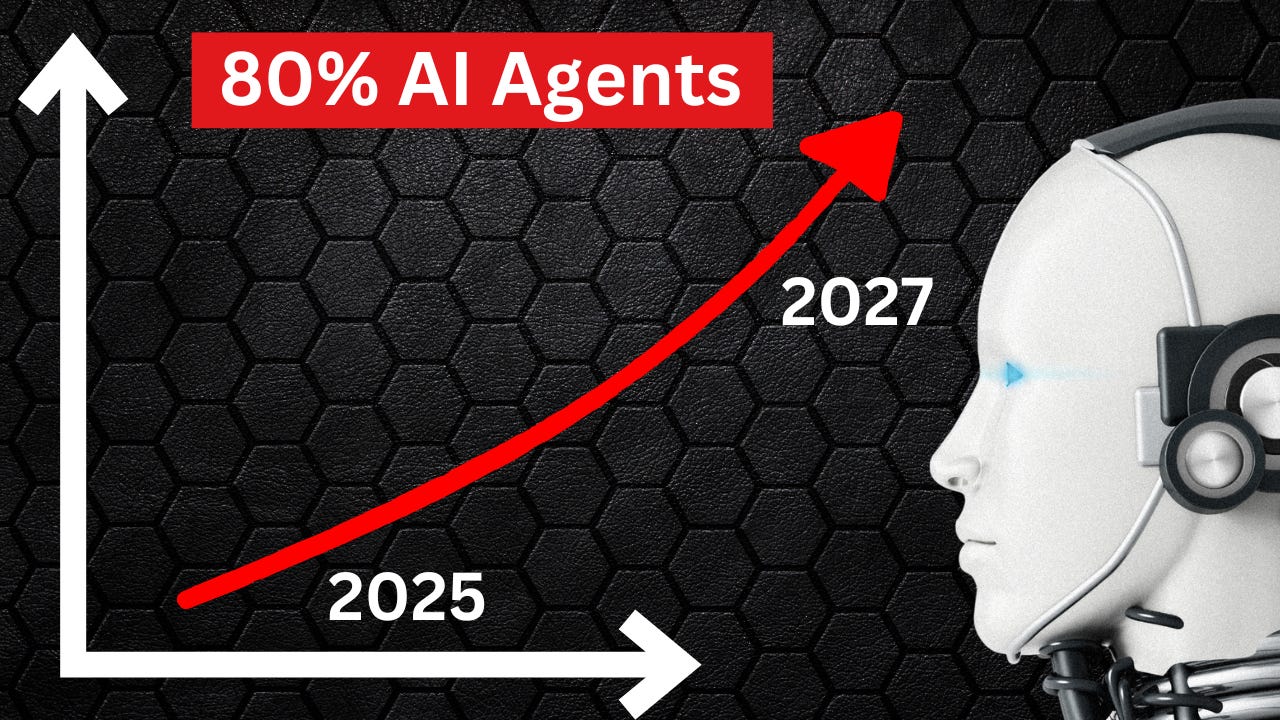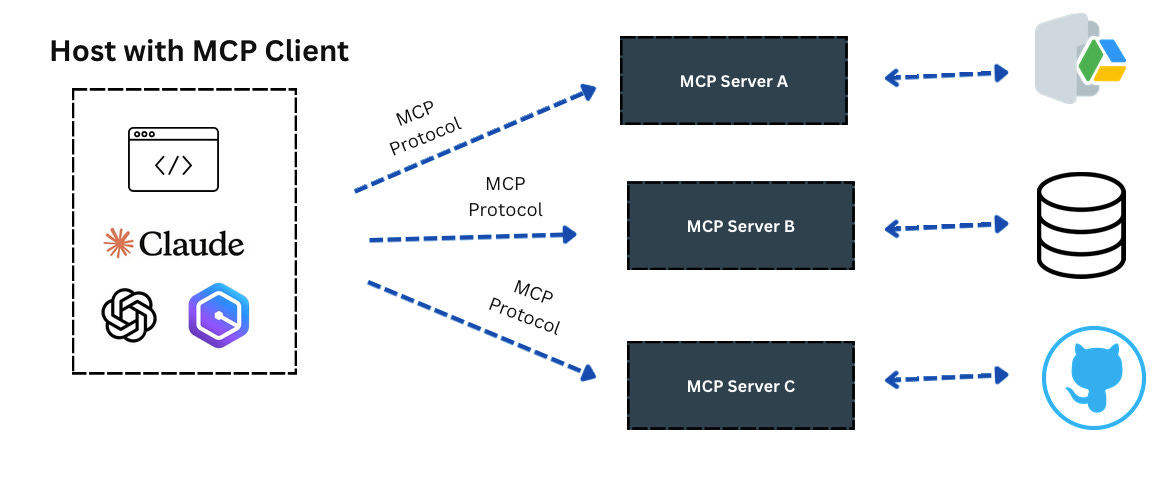How AI Will Replace 80% of Security Analysts — And What to Do About It
Agentic AI and Vibe Coding are changing the Cybersecurity landscape .. Are you ready ?
This is not another clickbaity “AI is taking over” article
If you are a cybersecurity professional then I need you to understand a few things
Two powerful trends are reshaping how cybersecurity work gets done — not in some distant future, but right now.
The first is the rise of vibe coding — a new development style where AI agents build entire applications by interpreting goals, constraints, and desired outcomes instead of following line-by-line instructions.
This isn’t just about saving time — it’s about changing who builds security tools, and how they’re built.
Tools like Cursor and Amazon’s recent Kiro are platforms that don’t just assist developers — they replace large chunks of what developers and engineers used to do.
They can scaffold projects, coordinate multiple agents, refactor codebases, test features, and deploy solutions — all from a single high-level prompt.
In cybersecurity, this changes everything:
Want an automated phishing response workflow? Prompt an agent to build it.
Need a compliance-ready cloud security dashboard? Let the AI assemble it.
Require a tool to classify data under GDPR or NIS2 risk categories? No code required — just context.
In this world, software isn’t written — it’s orchestrated. And teams that still rely on manual scripting, custom integrations, or reactive engineering are already falling behind the pace set by vibe-coded pipelines.
The second trend accelerating this shift is agentic AI, powered by emerging open standards like the Model Context Protocol (MCP).
These agent-based systems don’t just generate code — they take autonomous actions, reason across tasks, and connect with real-world tools and systems.
MCP acts like a universal USB port, allowing AI agents to interact with APIs, cloud resources, data platforms, and each other in secure, structured ways.
Together, vibe coding and agentic AI are ushering in a new era — where cybersecurity isn’t performed by large human teams, but by lean squads augmented by intelligent agents.
This article explores what that means for you — especially if you’re working in (or entering) cybersecurity.
Not just how the nature of the work is changing — but how 80% of current security analyst tasks can potentially be replaced
And more importantly, what you can do now to thrive in the age of autonomous security and Vibe built applications
The Era of “Boring Cybersecurity Work” Is Over
I have mentioned this before but it bears repeating
For decades, the majority of security roles have been reactive and repetitive.
Tier 1 SOC analysts triage alerts, follow playbooks, tune signatures, and escalate when needed.
GRC professionals copy controls into spreadsheets, perform checklist-based audits, and run awareness campaigns.
Even AppSec teams spend much of their time scanning for OWASP vulnerabilities and filing Jira tickets.
This type of routine, pattern-based work is exactly what AI excels at.
Agentic AI systems powered by MCP can now ingest context, interpret instructions, and autonomously complete multi-step security tasks.
What we’re seeing isn’t just automation but a potential replacement of of the security baseline — the foundational tasks that used to be the domain of junior analysts, compliance officers, or even cloud security engineers.
It’s tempting to think of AI as an assistant. But the assistant metaphor is outdated.
Today’s LLM-powered agents don’t need you to hold their hand. With the right context, they can:
Parse logs and identify anomalies
Draft security policies based on regulatory mappings
Correlate alerts across systems
Run vulnerability scans and generate prioritized reports
Auto-triage phishing incidents
What once took teams now takes tools.
This is the key reason why 80% of baseline analyst tasks will be obsolete within 2–3 years. And we’re already seeing this unfold:
Security Copilots are replacing Tier 1 SOC roles in large enterprises
AI policy engines are automating ISO 27001 compliance
LLMs like Claude and GPT-4o can generate, review, and even simulate threat models with minimal input
Vibe Coding: The New Way Security Software Is Built
Along with Agentic AI .. we are also entering the age of vibe coding — where software is built not line-by-line by humans, but end-to-end by AI agents interpreting high-level instructions.
This fundamentally changes how security tooling is created.
Instead of hiring engineers to write detection logic, build dashboards, or script automations, companies will prompt LLMs to do it for them.
In short:
SOC playbooks? AI-generated.
Cloud compliance checks? AI-coded.
Threat simulation labs? Built from prompts.
Security professionals who used to glue these pieces together with YAML and Python will find themselves replaced by autonomous agents that build, test, and deploy entire pipelines.
The shift from human developers to agentic developers is not a prediction — it’s happening now.
This leads us to a new reality I call the Baseline Collapse.
The baseline of cybersecurity work — what entry-level analysts, engineers, and consultants used to do — is being swallowed by AI. What was once “normal” work is now table stakes for an agent.
What happens when the baseline collapses?
Junior roles vanish
Mid-level roles are compressed
Senior roles become AI supervisors, not doers
And the implication is clear:
If you’re doing work that can be automated, you’ll be replaced. If you’re doing work that guides automation, you’ll be rewarded.
From Analyst to AI Supervisor
The new career path in cybersecurity won’t be about climbing titles. It’ll be about increasing leverage.
The SOC Analyst of tomorrow is not someone who reviews 100 alerts a day.
It’s someone who supervises a fleet of agents that triage those alerts while they focus on exception handling, escalation policy, and model drift.
We’re moving toward a hybrid role:
AI-Augmented Security Lead — part threat analyst, part prompt engineer, part workflow orchestrator.
This means new skills will matter:
Understanding how to give instructions to LLM agents (prompt chaining, memory design)
Reviewing AI-generated work with a critical eye
Building and maintaining secure agentic workflows
It’s a shift from doing security work to designing how security work gets done by AI.
The Rise of the One-Person Cybersecurity Company
There’s another consequence of this shift: solo security professionals will gain unprecedented power.
Thanks to agentic AI, you no longer need to be part of a big consulting firm to deliver value. With the right tools and prompts, one expert can do the work of an entire team:
Build a cloud security baseline for startups
Launch an AI policy framework for SaaS companies
Deliver continuous threat monitoring via agents
If you’ve ever thought about freelancing, launching a consultancy, or becoming a virtual CISO — now is the time. The gatekeeping of big org charts and vendor lock-in is breaking down.
The market will reward specialists with niche expertise and public credibility.
How to Stay Relevant (Before It’s Too Late)
This transformation is not years away — it’s already underway.
Here’s how to future-proof your career:
1. Reskill
Focus on:
AI security and GenAI misuse
Model Context Protocol (MCP)
Secure LLM application design
AI governance frameworks (e.g., NIST AI RMF)
2. Reposition
Find your niche. Make your value clear.
“I help SaaS companies secure LLM APIs in 30 days without slowing down dev teams.”
That’s a profile. Not a title.
3. Rebuild Your Workflow
Use AI to automate your own work:
SOC scripts → AI agents
Risk assessments → LLM prompt pipelines
Client reports → auto-summarized from logs and scans
4. Reach Out
Write. Teach. Publish. Share your insights. Build visibility.
In the AI era, expertise without visibility is invisible.
Final Thought: Don’t Be the Script — Be the Architect
If your job is a script, it will be replaced.
If your thinking designs the system that runs the script — you’ll be irreplaceable.
This isn’t about fear. It’s about opportunity.
Cybersecurity isn’t dying. It’s evolving. And if you evolve with it, you won’t just survive — you’ll thrive.



